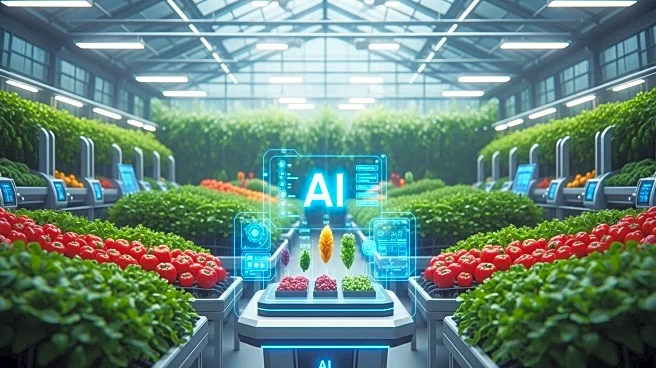What is the story about?
What's Happening?
Syngenta Vegetable Seeds has partnered with Heritable Agriculture to leverage artificial intelligence (AI) technology in identifying optimal vegetable seed varieties for growers worldwide. This collaboration aims to enhance the selection process by using AI tools to analyze historical data on geographical conditions and crop trials. The goal is to predict the best-performing commercial varieties in different regions, ensuring growers receive the most suitable products for their specific conditions. Matthew Johnston, Global Head of Vegetable Seeds and Flowers at Syngenta, emphasized the importance of planting the right seed for growers' success and the role of AI in bringing innovation to agriculture. Heritable Agriculture, founded at Google X, is focused on integrating AI into agriculture to improve product placement efficiency.
Why It's Important?
The integration of AI in agriculture represents a significant advancement in the industry, offering potential improvements in crop yield and sustainability. By optimizing seed selection, growers can achieve better results tailored to their unique environmental conditions, which is crucial for food security and efficient resource use. This collaboration highlights the growing importance of technology in addressing agricultural challenges, such as climate change and resource scarcity. For Syngenta, this partnership enhances its position as a leader in agricultural innovation, potentially increasing its market share and influence in the global seed industry. The use of AI also aligns with broader trends towards digital transformation in agriculture, promising more precise and data-driven farming practices.
Beyond the Headlines
The collaboration between Syngenta and Heritable Agriculture could have long-term implications for the agricultural industry, including ethical considerations around the use of AI in farming. The ability to predict seed performance with high accuracy may lead to more sustainable farming practices, reducing waste and improving food security. However, it also raises questions about data privacy and the potential for AI to disrupt traditional farming methods. As AI becomes more integrated into agriculture, stakeholders must consider the balance between technological advancement and maintaining ecological and social responsibility.















